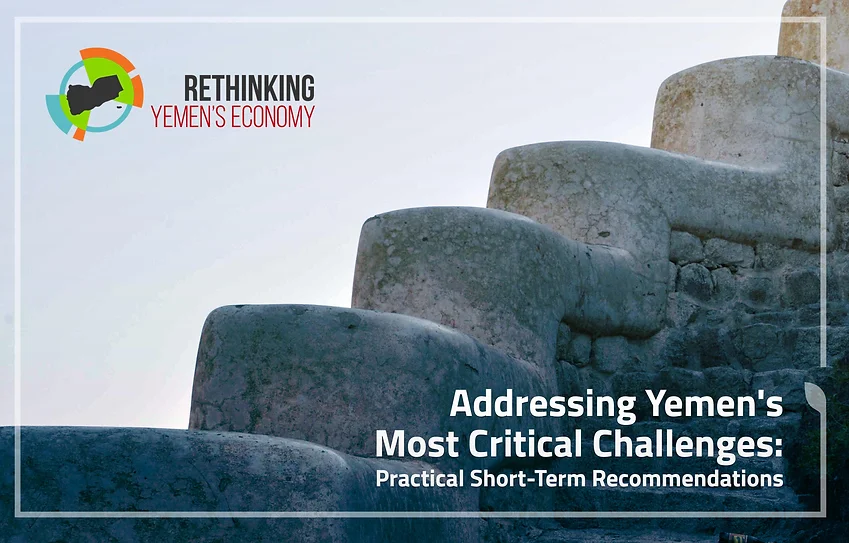DeepRoot in collaboration with Sana'a Center for Strategic Studies (SCSS) and the Center for Applied Research in Partnership with the Orient (CARPO) is implementing a two-year project to identify Yemen’s economic, humanitarian, social and developmental priorities in light of the ongoing conflict in Yemen and to prepare for the post-conflict recovery period. The project aims to build consensus in crucial policy areas through engaging and promoting informed Yemeni voices in the public discourse, and to positively influence local, regional and international development agendas.
The project has four components: (1) in the Development Champions Forums, Yemeni experts and professionals in social and economic development will identify key issues for intervention and provide recommendations towards tackling these issues; (2) in the Research Hive, we will – based on the issues and recommendations of the Development Champions – conduct research and identify best practices and lessons learned from international experiences to create knowledge capital for the Rethinking Yemen’s Economy initiative; (3) in the public outreach component, we will implement consultation workshops with local stakeholders, including the private sector, youth and civil society organizations; moreover, we will conduct campaigns through both traditional and social media outlets to engage the wider Yemeni public; (4) and through regional and international engagement we will inform stakeholders of project outcomes and aim to motivate and guide the international community’s policy interventions to the greatest benefit of the people of Yemen.
The project is co-funded by the European Union and the Embassy of the Kingdom of the Netherlands to Yemen.
Below is the policy brief that was developed as a result of the deliberations that took place in Amman, Jordan earlier last month.
Executive Summary:
As part of the “Rethinking Yemen’s Economy” initiative, the Development Champions Forum met in Amman, Jordan, between April 29 and May 1, 2017, to discuss practical interventions necessary to address the multiple and varied economic challenges facing Yemen. These challenges were identified within three main, if overlapping, categories; the food security crisis, the problems faced by the banking industry, and the collapse of basic service delivery.
In regards to the food crisis, the Development Champions’ recommendations called on the international community to move quickly in fulfilling all aid pledges. The champions also emphasized that aid should be cash-based rather than in-kind assistance whenever possible. They called on all parties to the conflict to work towards removing the logistical and financial obstacles affecting the importation and distribution of food and medical supplies, and to urgently improve the management of major commercial entry points, such as the ports of Hudaydah and Aden.
Regarding the banking sector, the Development Champions’ called on all parties to work towards a united and functioning Central Bank of Yemen (CBY), and stressed on depositing all public revenues in CBY accounts. The champions recommended that international aid funds should be directed to support Yemen’s foreign exchange holdings, in order to facilitate food and medicine imports.
Regarding public service delivery, the champions recommended to focus support on empowering local authorities and building their capacity in service delivery, as well as engaging the Yemeni diaspora in supporting critical service sectors and encouraging international and local NGOs to provide keys services where required.
